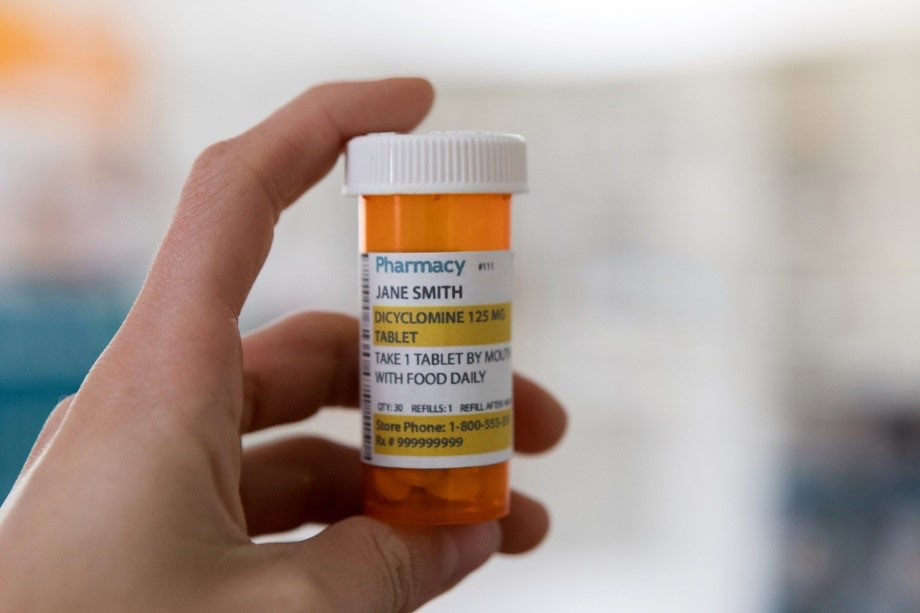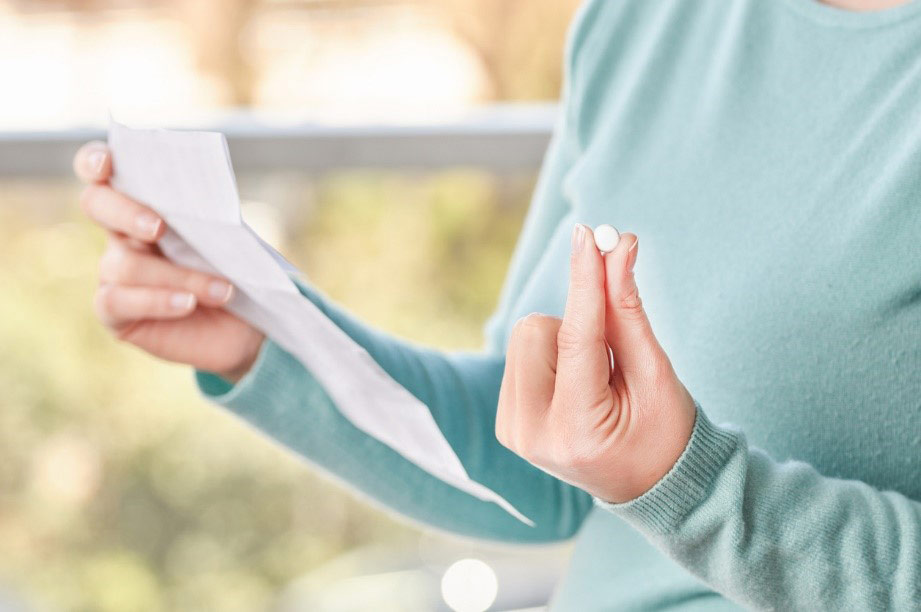Everyone has questions from time to time about their medications. Your pharmacist is a great resource to help answer these types of questions! Pharmacists are the medication experts on your healthcare team. They have extensive education about medications, how they interact with one another, and how they can support your health. Here, we provide some answers to common medication-related questions featuring one of ExactCare’s own clinical pharmacists, Reeya Patel, PharmD, BCMTMS.

Reeya Patel, PharmD, BCMTMS
Food and drink can impact the way some medications work. Sometimes, food and drink is needed to help medications work. Other times, food and drink prevents medications from working as well as they should—or prevents them from working at all.
It’s all about creating the right environment for a medication to be digested and absorbed into your body.
It’s important to know how food can impact your medication. Taking your medication with food can slow down the rate it is digested and absorbed into your body. Sometimes, this is just what a medication needs to work well! Other times, it can stop a medication from working as it should.
Why does this happen? When you take some medication with food, it can cause a surplus of the medication in your blood. For other medication, food can cause an amount that is too low for your medication to be effective.
Food can also help minimize negative side effects some medications cause, like stomach irritation and nausea.
Before taking your medication, you should always read the instructions to ensure you are taking it correctly. Check to see if you should be taking it around mealtimes or on an empty stomach. If you are unsure or cannot find the instructions, call your pharmacist for assistance.

Your medication instructions will tell you if you should take it with food or on an empty stomach. A few crackers or even a glass of milk can usually make a difference.
Food not only impacts how a medication works but it can also help minimize side effects some medications can cause. These include nausea, stomach inflammation, indigestion, ulcers and other possible side effects.
The following are examples of some medications that should be taken with food:

Taking certain medications with food can slow down the absorption process. Food can interact with the medication decreasing the amount available in the blood. As a result, the medication will take longer to start working. It also might not be absorbed the best way for it to work at all.
A general rule of thumb is to take your medication one hour before or two hours after eating. This will allow it to be absorbed properly and start working sooner.
Always read your medication instructions when determining when to take your medication in relation to mealtimes. If your instructions say something different, follow those!
The following are examples of medications that should be taken without food:
You should always consult with your doctor or pharmacist to determine the best way to take your medications. They are here to support you and can help you stay on track. Make sure you let them know all the medications you are taking. Keep a list of all your prescriptions, supplements, and over the counters on hand. If you have any questions, call us at 1-877-355-7225. Our pharmacists are here to help! *Please note: The examples listed above are not all-encompassing lists.
Information featured on the ExactCare website, including the Ask a Pharmacist page, should not be considered medical advice. Please consult your pharmacist or doctor for advice regarding your personal health situation. If ExactCare is your pharmacy, call us directly to talk to your pharmacist: 1-877-355-7225
My symptoms have gone away. Can I stop taking my medication?
I’m taking my blood pressure medication, so why isn’t my blood pressure going down?
Is it okay to take a supplement with my prescription medication?
What should I do if I forget to take my medication?
ExactCare is a national medication management and pharmacy provider that helps people with complex medical needs overcome medication-related and chronic care challenges.
©2024 ExactCare Pharmacy. All rights reserved. Please read the Terms of Use carefully before you start to use the website. By using the website you accept and agree to be bound and abide by these Terms of Use and our Privacy Policy incorporated herein by reference. If you do not want to agree to these Terms of Use or the Privacy Policy, you must not access or use the website.